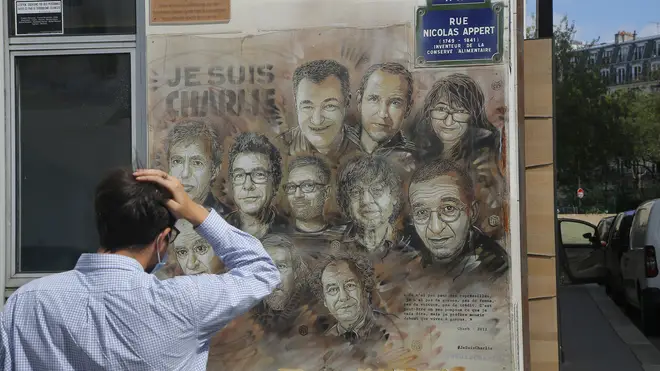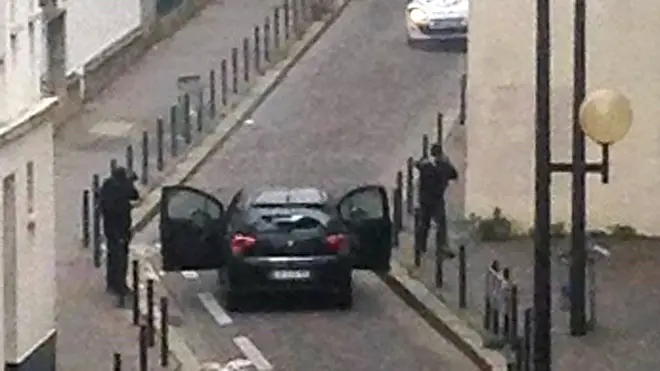
Henry Riley 4am - 7am
3 September 2020, 17:18

Satirical French newspaper Charlie Hebdo has republished controversial Muhammad cartoons that made them a target of terrorism, as thirteen men and a woman stand trial for the 2015 attack on their offices.
Seventeen people and all three gunmen died during the three days of attacks in January 2015 in the French capital.
Those on trial in France's terrorism court in Paris are accused of buying weapons, cars, and helping with logistics.
Most say they thought they were helping plan an ordinary crime.
Three, including the only woman to face charges, are being tried in absentia after leaving to join ISIS.
The attacks from January 7-9 2015 started during an editorial meeting at Charlie Hebdo, whose offices had been unmarked and guarded by police since the publication of caricatures of the Prophet Muhammed years before.
But in defiance, as the trial begins, latest editions of Charlie Hebdo have republished the 12 original cartoons of the Prophet Muhammad, which were published in a Danish newspaper before appearing in the French newspaper.
In its editorial, the magazine says it has often been asked to carry on printing caricatures of the Islamic prophet since the 2015 attacks.
It added: "We have always refused to do so, not because it is prohibited - the law allows us to do so - but because there was a need for a good reason to do it, a reason which has meaning and which brings something to the debate.
"To reproduce these cartoons in the week the trial over the January 2015 terrorist attacks opens seemed essential to us."

On January 7, brothers Cherif and Said Kouachi gunned down 12 people before carjacking a vehicle and fleeing.
They claimed the attacks in the name of al-Qaida.
Two days later, on the eve of the Jewish Sabbath, Amedy Coulibaly stormed the Hyper Cacher supermarket, killing four hostages in the name of ISIS as the brothers took control of a printing office outside the French capital.
The attackers died that day during police raids.
It took days for investigators to realise that Coulibaly was also responsible for the seemingly random death of a young policewoman the previous day.
It took further weeks to unravel the network of petty criminals and neighbourhood friends linking the three attackers.
By then, Coulibaly's wife had left for Syria with the help of two brothers also charged in the case.
Most of the 11 who will appear in court insist their help in the mass killings was unwitting.
"Since 2012, terrorism capitalised on the prevailing delinquency there is around these terrorists," said Samia Maktouf, a lawyer for one of the attack survivors.
"They are not second fiddles, they are full accomplices. You know, when you provide a weapon it's not to go and party."

'It's time to stand with Charlie Hebdo' - Maajid Nawaz's powerful monologue on free speech
Later that year, a separate network of French and Belgian fighters for IS struck Paris again, this time killing 130 people in attacks at the Bataclan concert hall, the national stadium, and in bars and restaurants.
Wednesday's trial is opening under tight security, with multiple police checks for anyone entering the main courtroom or the overflow rooms.
There are believed to be some 200 plaintiffs in the trial and survivors of the attacks will testify.
The trial had been due to start in March but it was postponed because of the Covid-19 pandemic.
The trial is due to last until November.
"They died so that you journalists could do your jobs," said Richard Malka, the lawyer for Charlie Hebdo.
"Let us not be afraid. Not of terrorism, not of freedom."